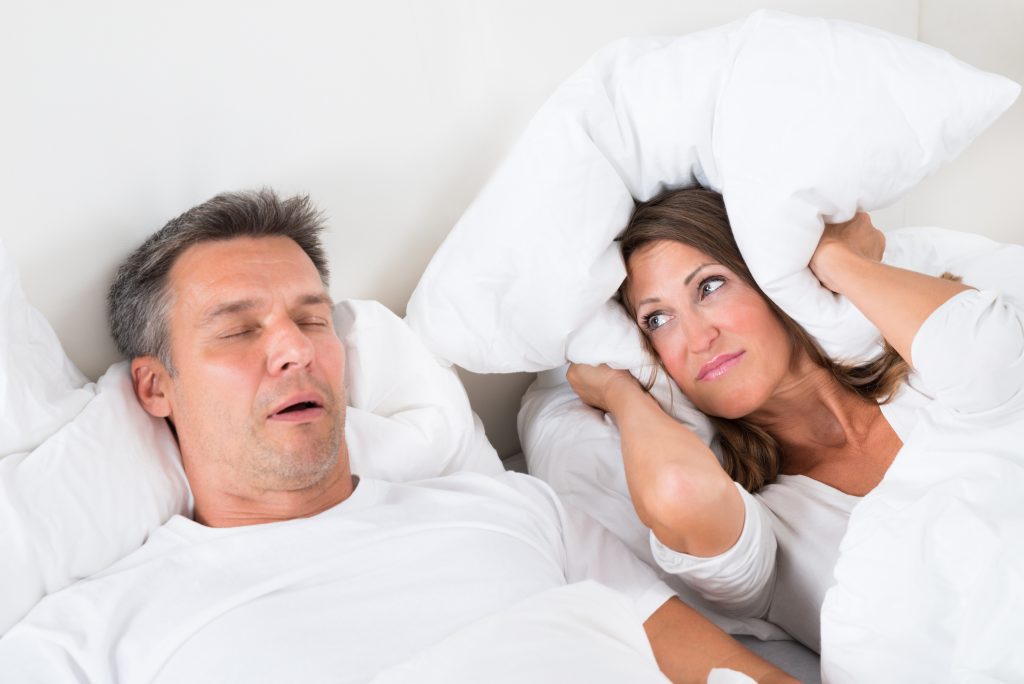Sleep Apnea
Sleep apnea is defined as the state of stopping breathing during sleep due to relaxation of the muscles of the pharynx. This interruption lasts from a few seconds to a few minutes. When this happens, the brain perceives the lack of oxygen in the blood and stimulates the muscles to take a deep breath without waking up. Then you fall into a deep sleep again and the cycle continues, usually without you realizing it.

The result of sleep apnea is that you suffer from lack of sleep with the immediate consequence of waking up exhausted and feeling tired all the next day.
Types of sleep apnea:
There are 3 types of sleep apnea which are analyzed below:
Obstructive Sleep Apnea:
the most common type in which the muscles of the neck close the airway causing stop of breathing. During apnea the patient continues the attempt to breathe unsuccessfully as the pharynx muscles have a blockage.
Central Sleep Apnea:
which is due to the brain and nervous system that fail to control the breath muscles to start the breathing cycle. In this type of apnea the patient does not move his chest at all to cause the cycle of breathing.
Mixed Sleep Apnea:
it is the sleep apnea which starts as central and ends up becoming obstructive
What are the symptoms of sleep apnea?
Sleep apnea has a wide range of symptoms. Perhaps you suffer from sleep apnea if you have more than 2-3 symptoms :
–Snoring: many sleep apnea patients address to their doctor because -Snoring woke their partner.
–Drowsiness: during the day some people seek help because
-They fell asleep while driving or working.
-Lack of attention
-Depression, irritability, bad mood
-Decreased sexual mood or erectile dysfunction
-Frequent urination
-Nightmares
Diagnosis of sleep apnea
The diagnosis of the disease is made by specialized pulmonologist doctors. The history is taken, physical examination and recording of certain parameters during sleep (polygraphic sleep study).
This test is performed in specialized sleep laboratories, by professionals in sleep medicine who deal with the syndrome. The patient sleeps in a special area in the hospital with simultaneous measurement of various physiological parameters such as
- Electroencephalogram
- Cardiogram
- Ophthalmogram
- Myogram etc.
The above measurement is done through adhesive electrodes superficially on the skin and is completely painless.
When the sleep study is completed, the doctor at the sleep clinic will inform you whether or not you suffer from Sleep Apnea Syndrome and therefore suggests the appropriate treatment.

